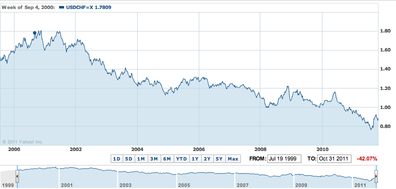
Economists often try to explain differences in income across countries by factors such as the capital stock, education level, and institutions defining property rights, all of which the government could influence with appropriate policies. But when you look at pictures like these, you can't help but be struck that there appear to be other very important and purely physical determinants of GDP.Economic activity clearly is much more intense near oceans, or, if inland, along navigable rivers where transportation by ship is feasible. Temperate climates with adequate rainfall also seem to be extremely important, perhaps for productivity of agriculture as well as for mitigating disease. When you look at just the United States, for example, no one would suggest that the big open stretches in the state of Utah imply that its governor has promoted policies that are hostile to business.
Somewhat similar to Noelle-Neumann's spiral of silence, Hamilton seems to be critiquing the feedback cycle between theoretics and governance: governance needs levers it can pull, theoreticians who provide them are rewarded, spurring more lever-oriented theoretics.
However, when 9 percent of the workforce is unemployed and has been sitting idle for months if not years, we want to know what we can do to fix the situation.
1] We can devalue the currency. ✔

2] Spend big money on projects. ✔
3] Lower barriers to immigration and let the foreigners buy the houses we don't want. ✖
4] Others?
Clearly, we need new theories!